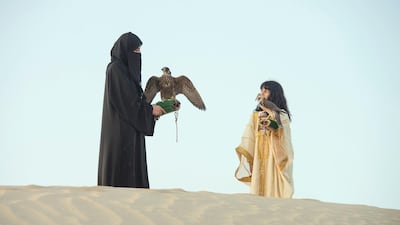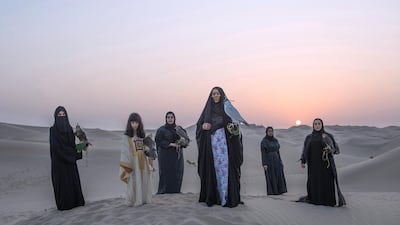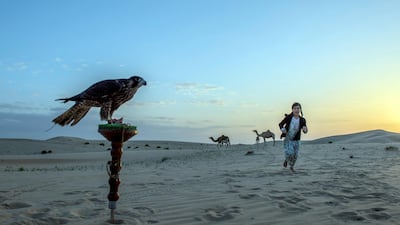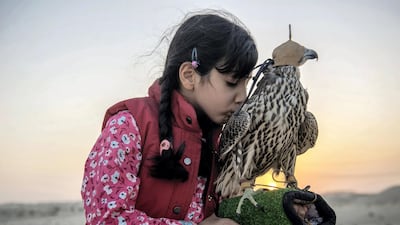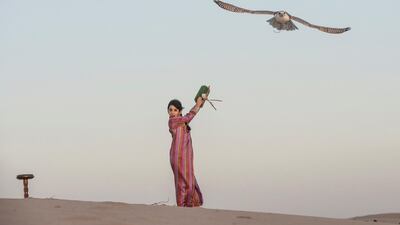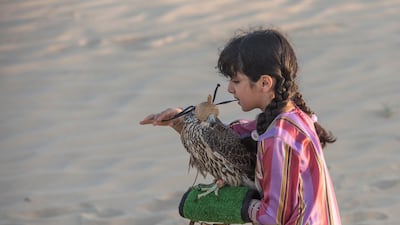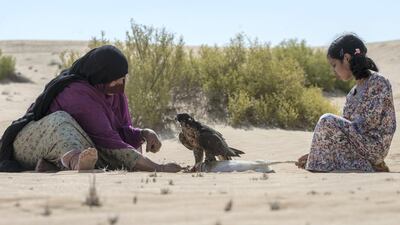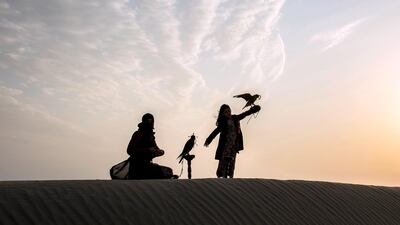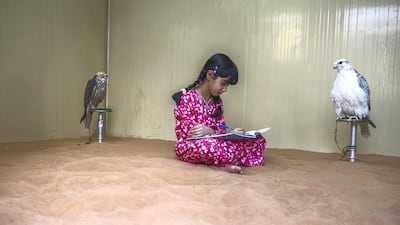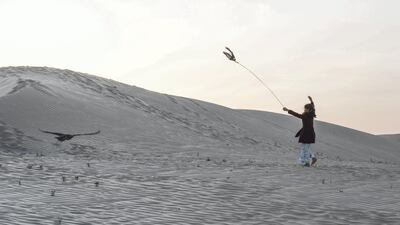Osha Al Mansoori's pets are out of the ordinary. At 7 years of age, the Emirati has three falcons and a saluki named Nahab. To call them pets is perhaps inaccurate, as she does not just take care of these animals. She hunts with them.
More extraordinary is that Osha has been training, so to speak, since she was an infant. Her mother, Ayesha Al Mansoori, who started learning falconry when she was 4, recalls introducing a falcon to her daughter when she was six months old.
The two train almost every day, setting off deep into the Abu Dhabi desert before daybreak, teaching their falcons and salukis how to hunt for animals such as rabbits and other birds. Together, Ayesha and Osha are part of a group of girls and women aiming to transform the male-dominated practice of falconry into a more inclusive sport for all.
Ayesha, now 38, has been teaching classes to women at the Abu Dhabi Ladies’ Club since 2017. Her interest in falconry was cemented by her father, who would take her and her brother out to the desert to train with birds of prey.
She has not stopped working with the birds since then. She says the makings of a great falconer lie in their knowledge of the bird. "You have to sit together with your falcon. You're at one with your falcon. You have to see in its eyes if it's sick or not, if it's hungry and if it's ready for training."
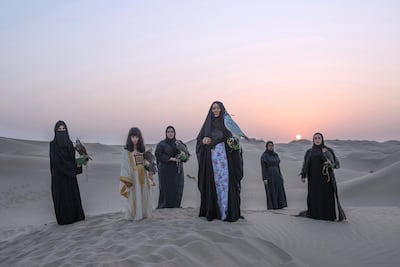
Though the pandemic has put a stop to her lessons for now, she still trains with family members, including Osha and an aunt, and some students.
The practice of falconry has been part of what is now the UAE for 4,000 years, with the Bedouin using the birds to hunt for food in the arid desert. Traditionally, Bedouin would pass on these skills from father to son.
In 2020, Ayesha is proving that it can be passed from mother to daughter, too. Last year, Osha participated in the President Cup Falcon Competitions, held at Abu Dhabi Falconers’ Club, where she was the only girl in her age group.
For Ayesha, falconry is shaping her daughter’s character in a unique way, giving her confidence at a young age. “She is different from other girls [her age],” she says. “She has something in her eyes, the way she sits, the way she talks with you. She has something special because of her training with her falcon.”
Osha’s journey into falconry has been closely documented by photographer Vidhyaa Chandramohan, who began accompanying female falconers during their training sessions last year. Chandramohan initially pursued her project in 2018, but knew that sensitivities around photographing women might be a challenge.
She introduced herself to Ayesha and spent a year developing their relationship. "I was explained [to her] what I wanted to do, just having conversations before I could begin the project. We developed a good rapport, and Ayesha opened up about how she started with falconry and how much she likes the desert environment," Chandramohan says.
Eventually, she captured Osha's training, too. "I met Osha when she was 6, and very active. She's very skilled and confident," she says. Like the other women, Chandramohan wakes up at 4am to follow the falconers to the outskirts of the capital. It's given her a reverence for the landscape and the women's skills.
“You need patience and passion, otherwise it’s very difficult to train the falcon. I really appreciate [Ayesha] and her daughter. Osha has a real interest in it.”
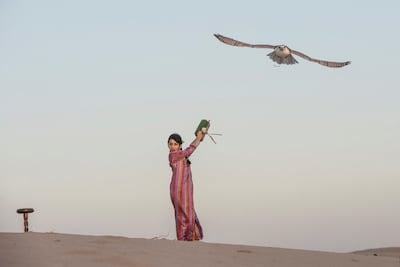
Ayesha hopes to keep developing this interest, not only for Osha but for other young women.
In her first year at the Falconer’s Club, she taught around 55 women in her classes, both Emiratis and expats alike. Though only a handful return to continue serious training, Ayesha hopes that this will create a movement towards women taking part in the sport. One of her goals is to set up a women’s competition within the club.
“I’m working on it. I will try,” she says. And while some men have questioned her ability as a falconer – asking ‘How can she train the falcon? How does she go hunting? It’s difficult’ – Ayesha says her skills speak for her.
“I don’t say anything. They just have to see my work.”
